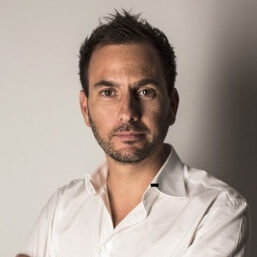The Case For Backing Important Causes
Now more than ever is the time for businesses to take a public stand on global issues.

The release of Edelman’s annual ‘Trust Barometer’ made for a depressing way to start the year. It gave us proof (as if it were needed) that people have lost faith in the global elite. From global business through to government and media, trust is at an all time low.
Seeing as though Edelman is a PR agency, it’s no surprise they know how to cause a stir. The report was timed for release just ahead of The World Economic Forum at Davos. And if anything is a short-hand for the global business and political elite, it’s Davos. But it’s not just Edelman that hoped to get Davos tongues wagging about trust.
I too wanted the Trust Barometer to drive conversations amongst the world’s business leaders. Why? Because when a trust deficit leads to a dangerous narcissist ruling the free world and Britain scoring an own goal through Brexit, it’s clear we need to start working out how to claw back that all-important trust.
But how can businesses regain respect? For me, the answer is clear. Businesses need to take more of a public stand on environmental and socio-political issues.
Although there’s a long-held belief that getting political might alienate part of a customer base, now that we are living in these highly poloarised times, the old orthodoxy of keeping schtum or sitting on the fence simply doesn’t work any more.
With the digital revolution came mass transparency. Social media has left businesses with nowhere to hide. This is why the everyday people who sustain businesses are now more interested in how a company acts and thinks, which is why the Trust Barometer itself argues for trust to be regained by companies taking a more of a societal role.
Part of that societal role lies in social purpose. It’s become de rigeur for businesses of all shapes and sizes to have a ‘purpose’. But that doesn’t mean it’s a fad. There are some very sound commercial reasons that underpin this shift in global business. Unilever research, for example, recently found that consumer-facing businesses are missing out on £820bn by not pushing sustainability.
On a personal level, I’m a huge believer in the idea that businesses should have a social purpose. It’s one of the fundamentals that shapes my businesses and the way I deal with my clients. But there’s scope to push this notion of businesses assuming a societal role even further. And that’s by getting businesses leaders to come out and take a stance on the world most important issues.
From climate crisis to equal rights, 2016 saw the start of business behemoths taking a stand. Smirnoff was brave enough to collaborate with a street artist to build a body of work that championed US immigrants. Bud Light ran ads that celebrated gender identity.
A number of A-lister brands, from Apple to Uber, came out against North Carolina’s transgender discrimination. And Lush sold soap to raise money for refugees. More recently, some bold businesses, like Ben & Jerry’s, Patagonia and Expedia, stepped into the highly charged fray that was Trump’s inauguration.
Of course, not every customer will sympathise with these views. But the naysayers must be in the minority because these brands experience healthy profits. In a world where market places are becoming increasingly crowded, coming out on contentious issues helps a business stand out from its competitors, whilst simultaneously fulfilling today’s mandatory need for purpose.
But if you don’t believe me, perhaps you’ll listen instead to Aaron Sherinian, CMO at United Nations Foundation, who points out that: “Silence on social issues could be the kiss of death for brands. Especially the way that young customers are engaging them right now. They’re going to vote at the cash register.”
In our currently polarised culture, there’s clearly a commercial argument to ‘come out’. But if that’s not enough to persuade businesses and their leaders to stand up for what they believe in, then the moral imperative should be the final spur to action.
Clearly some issues are more controversial than others. For every brand that stands up for LGBT rights, there’s a bakery refusing to make a ‘gay cake'.
But there’s one issue that the vast majority of the sane global population agree on. And that’s climate crisis. At a time when immense environmental power is being handed to oil executives and climate change deniers, it’s vital that the world’s business leaders speak out.
If CEOs and brands remain too nervous to communicate – and act on – a point of view on the world’s climate crisis, then the great and the good who gathered to slap each others’ backs at Davos will have to face a new inconvenient truth: there will be no one left to buy their products and services if they don’t take the reins on climate change.
By Chris Gorell Barnes, founder and CEO at content agency, Adjust Your Set and Co-Founder of BLUE Marine Foundation.
Thanks for signing up to Minutehack alerts.
Brilliant editorials heading your way soon.
Okay, Thanks!




